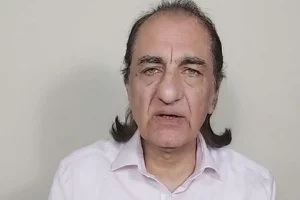The UK has stepped in where Pakistan failed. The British government has declared Pakistan's first Nobel Prize winner, Dr Abdus Salam's residence in Britain as a national heritage site and installed a blue plaque outside the building. The government-installed plaque says: "Abdus Salam 1926-1996, Physicist, Nobel Laureate and Champion of Science in developing countries, lived here.”
Salam's contribution to research in Physics paved the way for scientists to discover the Higgs boson decades after his death. The noted physics scientist, who won the Nobel in 1979 also became the first Muslim in the world to be given that award.
Ironically, while the UK confers the honour, Salam's own country Pakistan has made consistent efforts over decades to erase his achievements from public memory. Born in Punjab in undivided India, Salam was shunned in Pakistan due to discrimination against the Ahmadi community, also known as Ahmadiyyas. His Nobel Prize could not help him redeem his honour in Pakistan as a Qadiani—a derogatory term for the Ahmadi community.
<img class="wp-image-41591 size-full" src="https://indianarrative.com/wp-content/uploads/2020/12/AbdusSalamFilm.jpg" alt="AbdusSalamFilm" width="892" height="724" /> Anand Kamalakar's film – The First ****** Nobel Laureate put global spotlight on the Pakistani scientist (Photo: @salamdocufilm)In 2018, Anand Kamalakar—a Brooklyn-based film director, producer and editor made a 75-minute documentary on the extraordinary life of the Pakistani scientist. The film, <em>Salam – The First ****** Nobel Laureate, </em>bridges Salam's life of religion and science and that of war and peace—the nuclear scientist who promoted peace. The Netflix film pushed Salam back into global limelight and remains a highly-acclaimed film.
Even as other countries remember and honour the scientist, Pakistan made strenuous efforts to shove him into oblivion. The government even erased the word Muslim from his gravestone. A 1974 law declared the Ahmadis non-Muslim and took away their rights.
An entire nation continues to discriminate against the Ahmadis—mosques have been attacked and dozens of Ahamadis killed. Their graves are damaged and they cannot recite the Koran, as doing so invites imprisonment. Often, the Ahmadis are victims of targeted killings. Barely a fortnight back, <strong><a href="https://www.hrw.org/news/2020/11/26/pakistan-surge-targeted-killings-ahmadis">three human rights organizations</a></strong>—Human Rights Watch (HRW), Amnesty International (AI) and International Commission of Jurists (ICJ)—called on Islamabad to investigate the surge in attacks on the minority Ahmadi community.
Even as Pakistan ignores its hero, the scientific, cultural and historical worlds ensure that Salam's legacy lives on, and thrives. The documentary made in the US and the honour by the British government are examples of that..




















